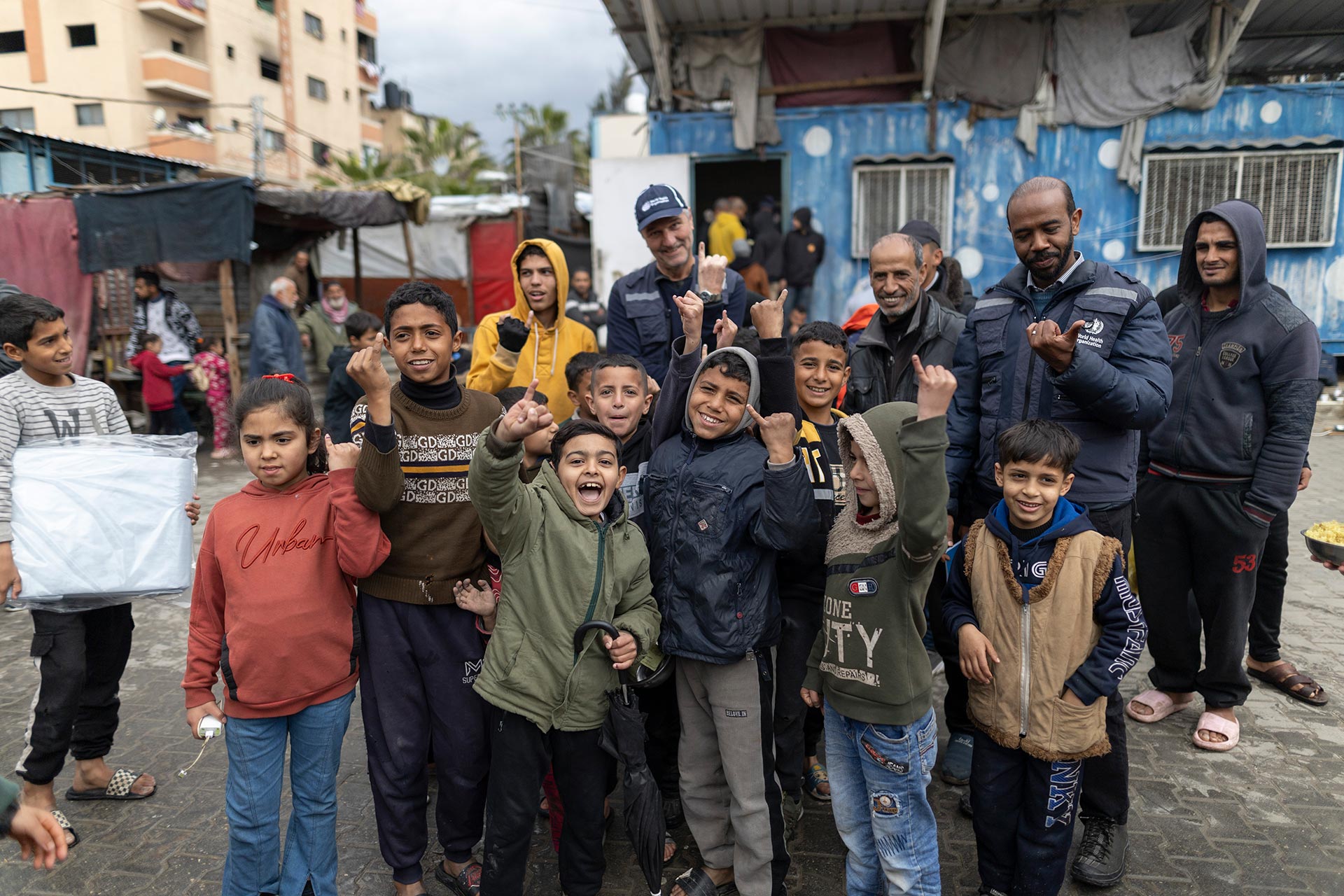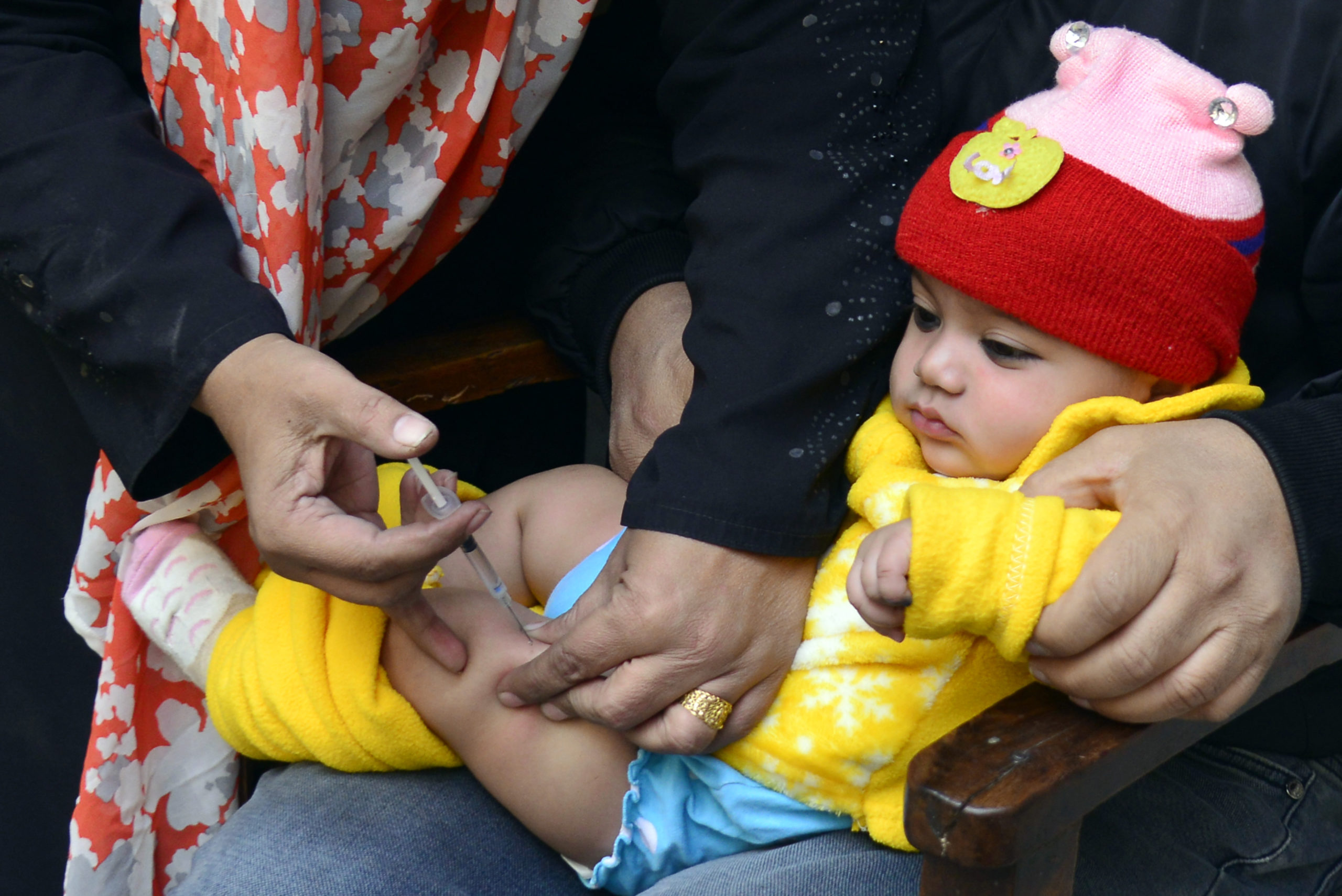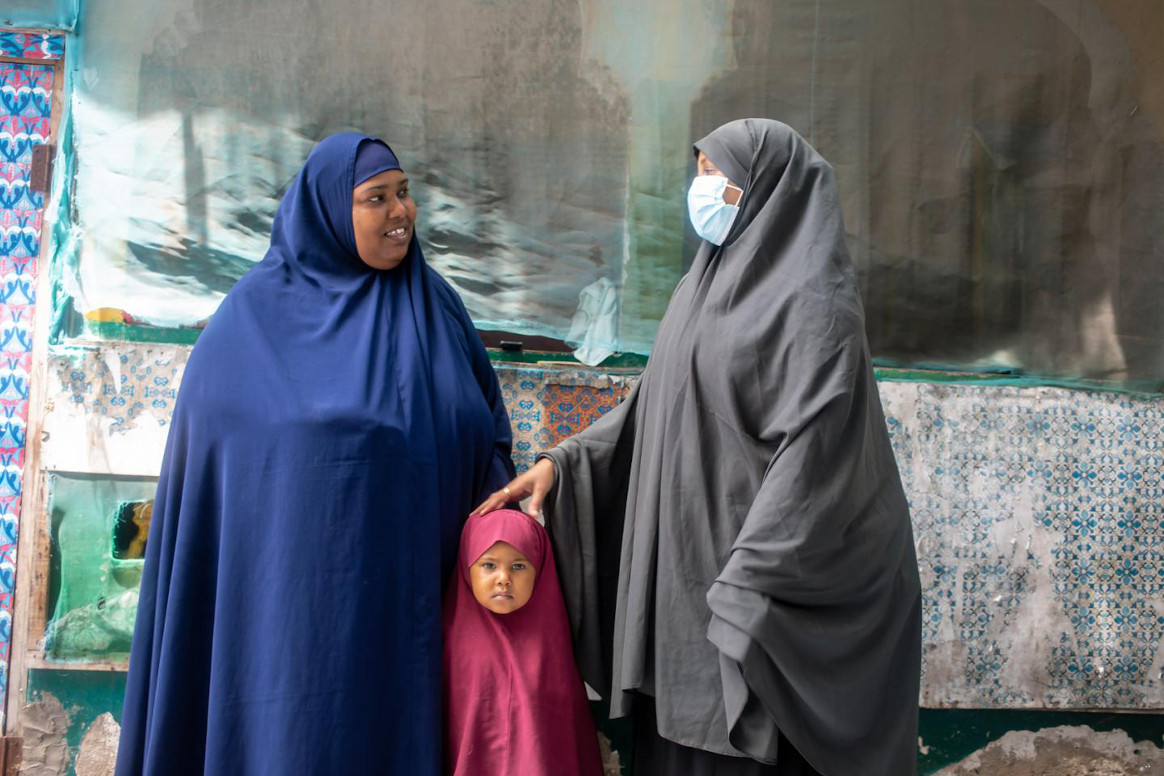
Fahima Ahmed Hassan is a 25-year-old community mobilizer who goes the extra mile to ensure parents of children under the age of five are informed of Somalia’s polio vaccination campaigns and are ready for their children to be vaccinated.
Fahima and the other mobilisers are from the local community and they lay the groundwork for vaccinators ahead of campaigns. They work tirelessly to reach every house, speaking to families to help them understand, trust, and accept the vaccine.
On a mid-October morning, children and their families are waiting anxiously. They have been informed, by Fahima and through loudspeaker announcements, that a team of vaccinators will be visiting their community.
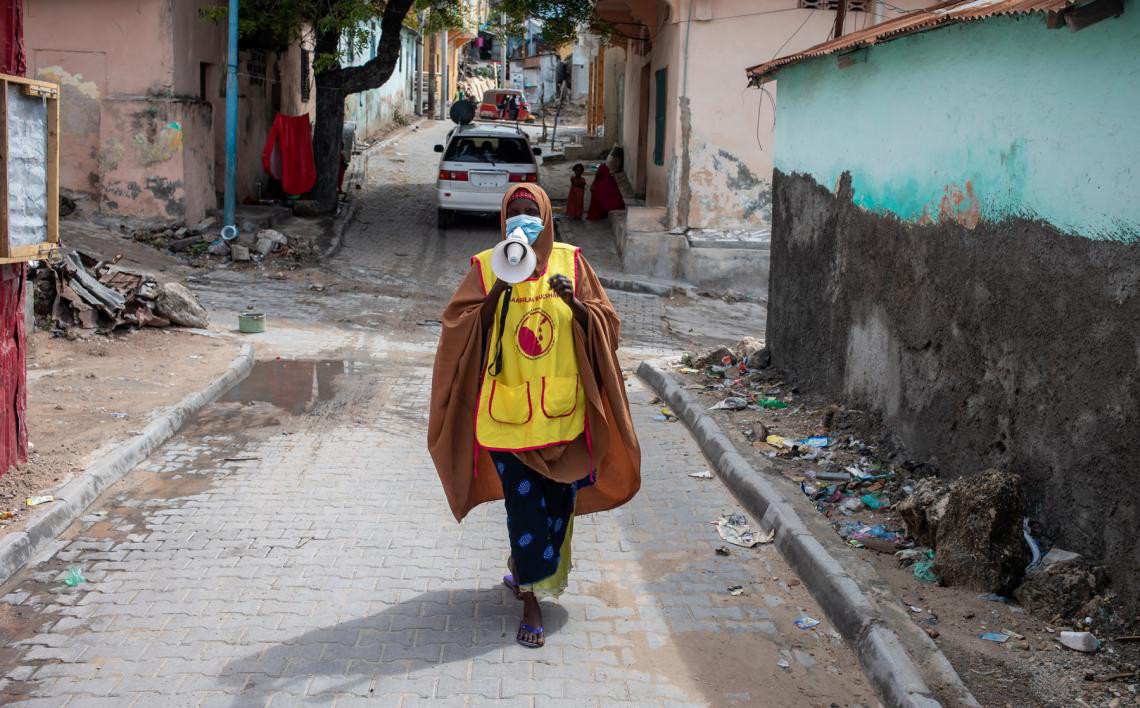
Amid the COVID-19 pandemic, some people are concerned and worried about taking their children for vaccinations. They fear they might contract the virus or expose their children to it. Together with her team, Fahima takes every precaution to keep herself and the community she serves protected.
She explains that it is critical to show the community that vaccination can go ahead while maintaining physical distancing, wearing protective masks and using hand sanitizer.
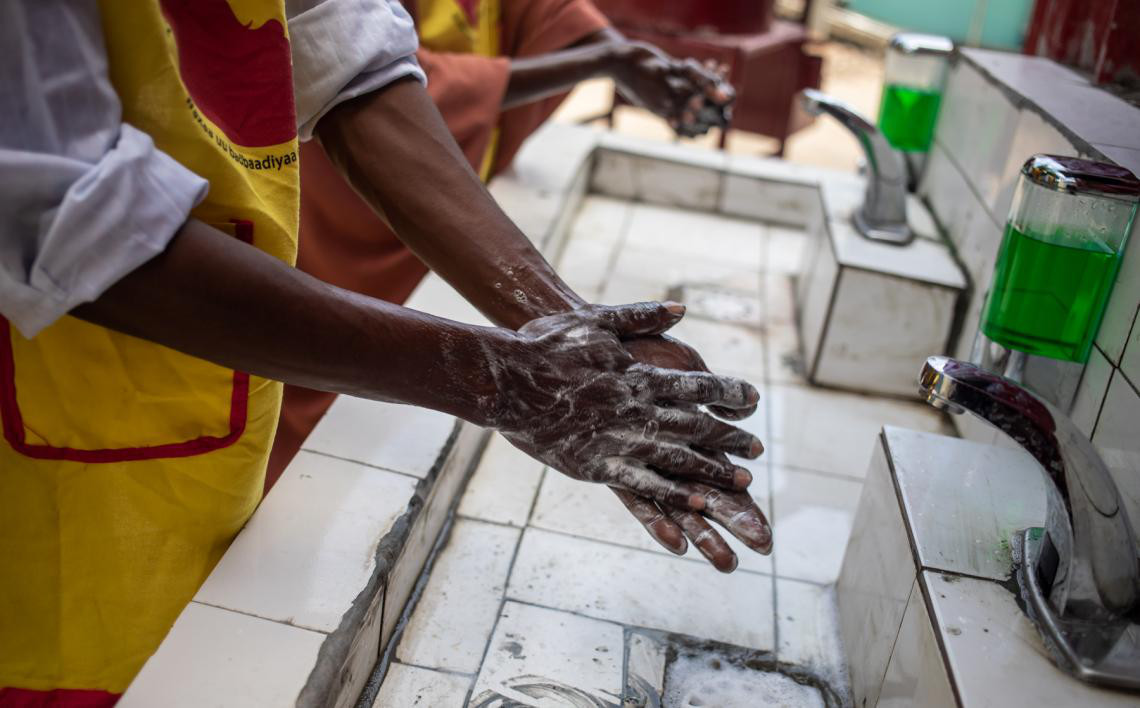
Somalia’s vaccine advocates
Some people do not need to be convinced about the benefits of immunization. Asha Osman Yarow is one of them. She is patiently waiting for her son to be vaccinated.
“I decided to vaccinate my children because their health is important to me,” Asha says, holding her young son. “Vaccines protect children against diseases, like polio, measles and others.”
“Praise be to Allah that these services come to us,” chimes in Sahro Mohamed Haile. “I encourage all mothers to take care of their children, vaccinate them and keep records of their vaccination status. Me, I’m here today with my grandson,” she adds with a smile.
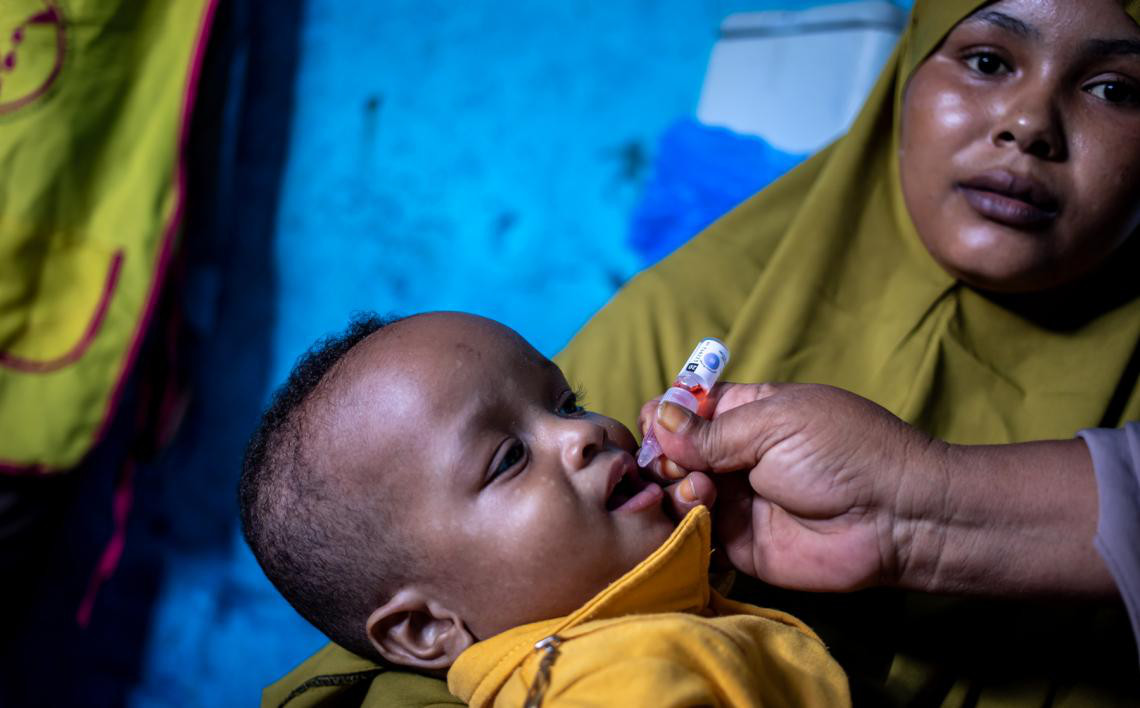
Others in the community are more reluctant to accept vaccines. “At first, I refused to vaccinate my children. I heard people say that the vaccines were no good and that they were made by non-Muslims. I was scared,” explains 30-year-old Wardo. “After speaking to the community mobilizers, I realized that the vaccines are good for my children’s health – and I changed my mind.”
“I understand where they are coming from, and I do my best to give them information and convince them that vaccinations are beneficial,” says Fahima. “Illiteracy, lack of education and myths make people reject the vaccines.”
Together with the other community mobilizers, Fahima engages elders, religious leaders and community influencers as well as urging parents until the very last minute to come forward.
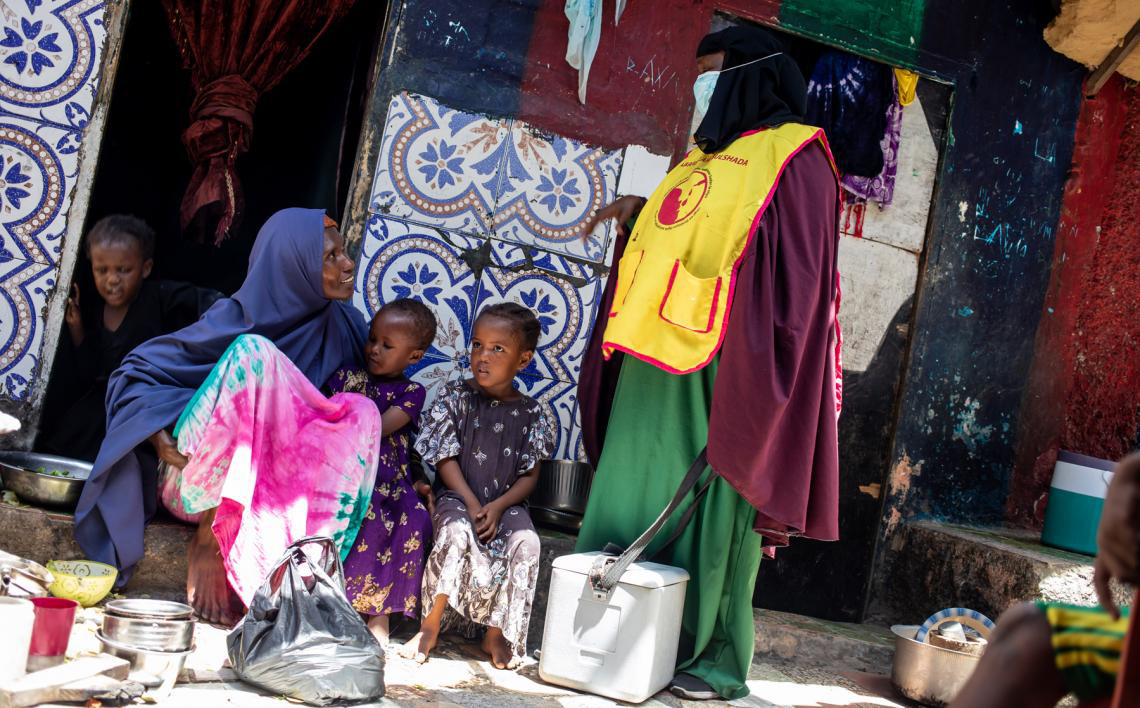
“I’ve vaccinated all of my children and I was one of the first people in my community to support vaccines,” says Isha Hassan Saney, a fellow community mobilizer. She believes showing a good example helps to convince others in the community to vaccinate their children.
“I am motivated to serve the community, especially the mothers and children, because they need to be taken care of,” Fahima says. “There is no better reward than seeing them healthy.”
COVID-19 shows why vaccines are so important
Despite COVID-19, and the enhanced risk of infecting her husband and her extended family members when she comes home, Fahima continues to show up for work and doesn’t let fear take over.
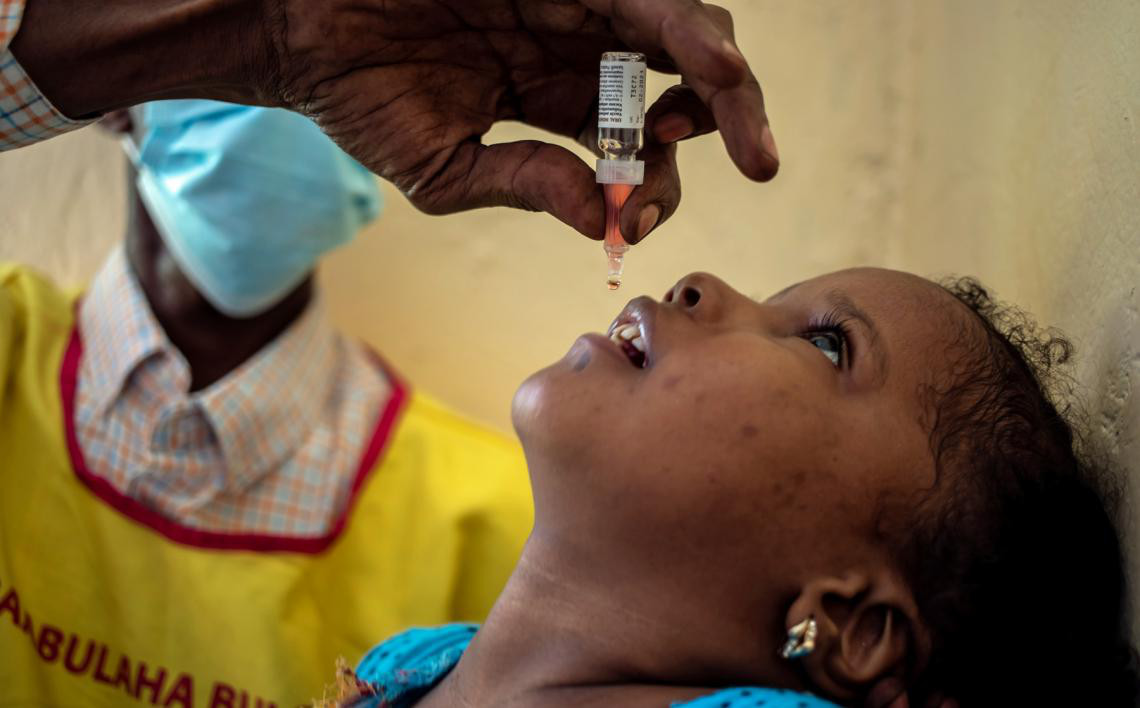
The COVID-19 pandemic has revealed what is at stake when communities do not have the protective shield of immunization against an infectious disease. When vaccines are available, they are the most effective tool to prevent dangerous disease outbreaks.
Staying informed about their benefits and understanding the risks of not getting vaccinated has never been so important. Fahima and the other community mobilizers play an instrumental role in this.
During the recent polio immunization campaign, 8 951 vaccinators went door to door and 3 390 community mobilizers, including Fahima and her team, sensitized communities. The two-part campaign, organized by the Federal Ministry of Health, UNICEF and WHO, reached more than a million children under the age of five in south and central regions of Somalia.
Read this story on the UNICEF Somalia site.

